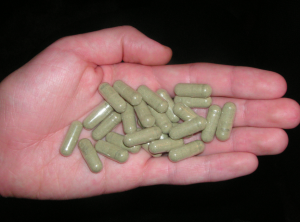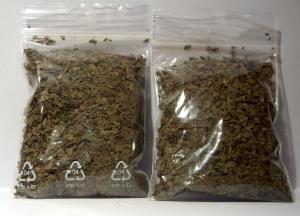This article was produced in collaboration with AlterNet and first appeared here.

It is regulated as an herbal supplement, not a controlled substance, but it is coming under some scrutiny by lawmakers and regulators. The FDA banned its import in 2014, and the DEA has it listed as a drug of concern, but has not moved to criminalize it. It is illegal in four states, though -- Indiana, Tennessee, Vermont and Wyoming -- and similar laws are now being proposed in Florida and New Jersey.
The stuff is called kratom, and was traditionally used in Thailand and Malaysia to help endure physical labor, relieve pain, and stop diarrhea. It was also good for relieving the symptoms of opium withdrawal.
That's because its active ingredients activate the same opioid receptors heroin and prescription pain pills do. And it behaves like an opiate -- with a couple of exceptions, one interesting and one quite important.

"Direct kratom overdoses from the life-threatening respiratory depression that usually occurs with opioid overdoses have not been reported," says Oliver Grundmann, clinical associate professor of medicinal chemistry at the University of Florida, told journalist Maia Szalavitz at Vice. Grundmann should know; he just reviewed the research on kratom for the International Journal of Legal Medicine.
"It's a fascinating drug, but we need to know a lot more about it, Dr. Edward W. Boyer, a professor of emergency medicine at the University of Massachusetts Medical School and a co-author of several scientific articles on kratom, told the Times. "Recreationally or to self-treat opioid dependence, beware -- potentially you're at just as much risk" as with an opiate.
Well, except for that whole fatal overdose thing. And like the kratom high, the physical dependence appears much milder.
Szalavitz consulted Mark Swogger, an assistant professor of psychiatry at the University of Rochester Medical Center, who with his colleagues analyzed 161 "experience reports" posted by kratom users on the drug information site Erowid.org for a recent study in the Journal of Psychoactive Drugs.
"I think it's pretty safe to say that kratom has at least some addiction potential. The data is fairly strong on that and our study also found that people are reporting addiction," but "overall, we found that it's really mild compared to opioid addiction and it didn't seem to last as long."
About one in six of the users reported nausea or stomach pain and 6% actually vomited. There have been a handful of other handful of reports of liver problems.
All this makes kratom something like opium's mild-mannered little sister. And that is apparently something a lot of people are looking for.
One of them was Susan Ash, 46, who told the Times she began taking kratom while being treated for dependence on prescription pain relievers and now takes a small dose daily to ease chronic pain and depression.
She was so impressed with the results that last year, she founded the American Kratom Association to represent consumers. The group now has more than 2,000 members and lobbies against bills to ban the herb.
"We know from all our experiences that kratom has the potential to be a wonderful medicine," she said. "We're all experiencing that it's changing our lives. We do agree that more science is needed to actually prove this potential that we know it has."
Yes, more science is needed, and kratom does have its disaffected users, as the Times was quick to dig up, but so far, it looks like we have a drug like opium, but with attenuated effects. If people are taking kratom to get off heroin or prescription pills or to treat pain or just to get a nice buzz, and they're not overdosing by the tens of thousands, as they are with the opiates, that would seem like an overall good thing. If we want to reduce harm from heroin and prescription opiates, kratom should be studied and, perhaps, embraced, not proscribed.
This work by StoptheDrugWar.org is licensed under Creative Commons Attribution-ShareAlike 4.0 International
Comments
This makes sense to me, so
This makes sense to me, so obviously, the government will never go for it.
Our Public Servants
Add new comment